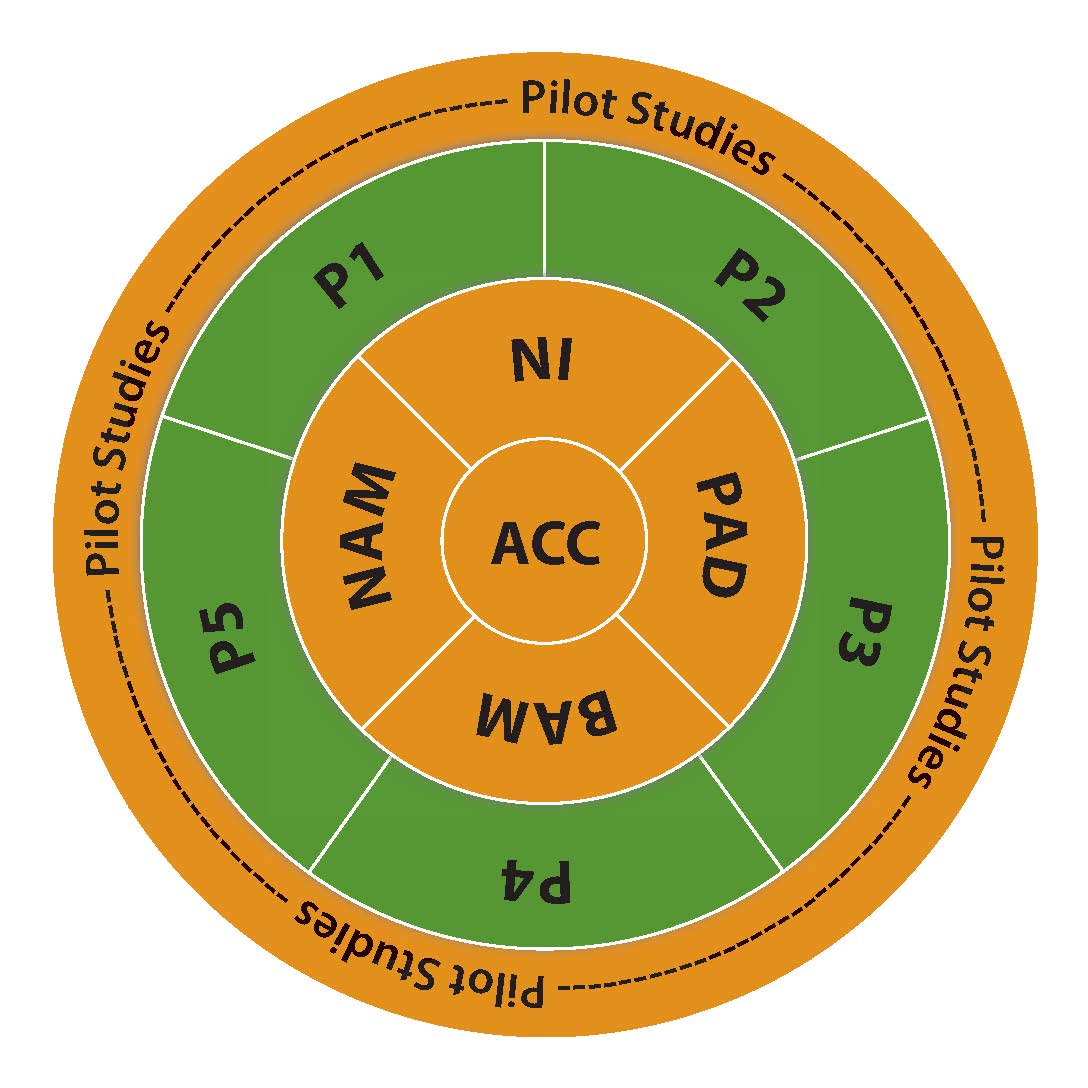About the UC San Diego Translational Methamphetamine AIDS Research Center (TMARC)
 HIV and methamphetamine (METH) commonly co-occur and remain a major burden on the healthcare system, due in part to their individual and combined toxic effects on neural systems that underlie higher-level neurocognitive functions, such as risky decision-making. Building on the accomplishments of the prior 3 years of funding, this renewal application of the Translational Methamphetamine AIDS Research Center (TMARC) will elucidate the neurobiological mechanisms and everyday impact of METH/HIV-induced central nervous system (CNS) injury using a translational approach guided by a conceptual model that emphasizes both continuity (e.g., decision-making) and novel (e.g., aging, social cognition) themes. Human research Projects will examine the effects of HIV, METH, and aging on:
HIV and methamphetamine (METH) commonly co-occur and remain a major burden on the healthcare system, due in part to their individual and combined toxic effects on neural systems that underlie higher-level neurocognitive functions, such as risky decision-making. Building on the accomplishments of the prior 3 years of funding, this renewal application of the Translational Methamphetamine AIDS Research Center (TMARC) will elucidate the neurobiological mechanisms and everyday impact of METH/HIV-induced central nervous system (CNS) injury using a translational approach guided by a conceptual model that emphasizes both continuity (e.g., decision-making) and novel (e.g., aging, social cognition) themes. Human research Projects will examine the effects of HIV, METH, and aging on: - risk taking, decision-making, and inhibitory deficits (P1)
- functional and structural connectivity in risk taking (P2)
- social cognition and HIV transmission risk (P3)
Extending and complementing the human studies are 2 animal Projects using HIV/gp120 and inducible Tat transgenic mouse models, which will examine:
- the effects of METH and aging on cognition and social behavior (P4)
- the effects of gene expression in the context of behavioral and neuropathological changes (P5)
A third animal Project, nested within P1, will enhance translation of the human studies on decision-making to animals. TMARC will provide scientific leadership, technical support, and opportunities for training to coalesce the efforts of an interdisciplinary group of Investigators, which will include 3 scientific Cores (i.e., Behavioral Assessment and Medical; Neuroimaging; and Neuroscience and Animal Models). The renewal also includes a new Pilot and Developmental Core, which will support innovative pilot studies and foster the development of junior scientists. An Administrative Coordinating Core will continue to synergize all TMARC activities by way of an Executive Unit, which oversees Units on Data Management and Information Systems, Statistics, and Participant accrual and tracking. Thus, in the renewal period, TMARC endeavors to expand its role as a local and national resource for translational multidisciplinary research and training in the neuroscience of addictions and neuroAIDS.
